Fleurs du Mal Magazine


Most people outside Italy know Pier Paolo Pasolini for his films, many of which began as literary works—Arabian Nights, The Gospel According to Matthew, The Decameron, and The Canterbury Tales among them.
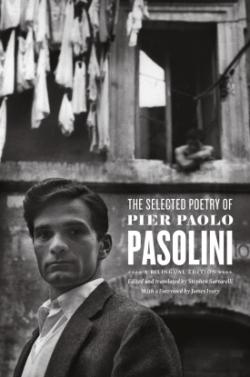 What most people are not aware of is that he was primarily a poet, publishing nineteen books of poems during his lifetime, as well as a visual artist, novelist, playwright, and journalist. Half a dozen of these books have been excerpted and published in English over the years, but even if one were to read all of those, the wide range of poetic styles and subjects that occupied Pasolini during his lifetime would still elude the English-language reader.
What most people are not aware of is that he was primarily a poet, publishing nineteen books of poems during his lifetime, as well as a visual artist, novelist, playwright, and journalist. Half a dozen of these books have been excerpted and published in English over the years, but even if one were to read all of those, the wide range of poetic styles and subjects that occupied Pasolini during his lifetime would still elude the English-language reader.
For the first time, Anglophones will now be able to discover the many facets of this singular poet. Avoiding the tactics of the slim, idiosyncratic, and aesthetically or politically motivated volumes currently available in English, Stephen Sartarelli has chosen poems from every period of Pasolini’s poetic oeuvre. In doing so, he gives English-language readers a more complete picture of the poet, whose verse ranged from short lyrics to longer poems and extended sequences, and whose themes ran not only to the moral, spiritual, and social spheres but also to the aesthetic and sexual, for which he is most known in the United States today. This volume shows how central poetry was to Pasolini, no matter what else he was doing in his creative life, and how poetry informed all of his work from the visual arts to his political essays to his films. Pier Paolo Pasolini was “a poet of the cinema,” as James Ivory says in the book’s foreword, who “left a trove of words on paper that can live on as the fast-deteriorating images he created on celluloid cannot.”
Pier Paolo Pasolini (1922–75) was an Italian film director, writer, and intellectual. This generous selection of poems will be welcomed by poetry lovers and film buffs alike and will be an event in American letters.
The Selected Poetry of Pier Paolo Pasolini
A Bilingual Edition
Edited and Translated by Stephen Sartarelli
With a Foreword by James Ivory
Format Paperback
512 pages
Dimensions 152.4 x 226.06 x 33.02mm
Publisher The University of Chicago Press
Language English
Edition Bilingual edition
ISBN10 022632544X
ISBN13 9780226325446
2015
Paper $25.00
Susan Stewart | The Nation: “An accused blasphemer deeply devoted to Franciscan Catholicism, a Gramscian communist permanently expelled from the party, an avowed homosexual dedicated to the consensual sexual freedom of everyone, a champion of the local on a global scale, a neorealist of the imagination, and a radically innovative poet alienated from the existing practices of the avant-garde: Pasolini is not so much a figure of contradictions as he is a force against the incoherence hiding in every hypocrisy.”
• fleursdumal.nl magazine
More in: - Book News, Archive O-P, Archive O-P, AUDIO, CINEMA, RADIO & TV, Pier Paolo Pasolini
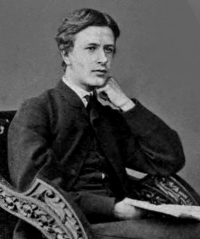
Enough
When all my words were said,
When all my songs were sung,
I thought to pass among
The unforgotten dead,
A Queen of ruth to reign
With her, who gathereth tears
From all the lands and years,
The Lesbian maid of pain;
That lovers, when they wove
The double myrtle-wreath,
Should sigh with mingled breath
Beneath the wings of Love:
‘How piteous were her wrongs,
Her words were falling dew,
All pleasant verse she knew,
But not the Song of songs.’
Yet now, O Love, that you
Have kissed my forehead, I
Have sung indeed, can die,
And be forgotten too.
Digby Mackworth Dolben
(1848 – 1867)
Enough
• fleursdumal.nl magazine
More in: Archive C-D, Archive C-D, Digby Mackworth Dolben
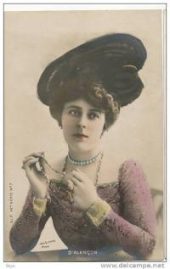
Elégie
L’allée est ténébreuse, et le ciel est mystique;
L’Aphrodita de marbre étend son beau corps nu,
Le gazon est humide et luisant, il a plu…
Sur le gravier s’allonge une ombre fantastique.
L’amour a, par moments, besoin de s’exiler;
Et c’est pourquoi, ce soir, plaisir ou délivrance,
Nous allons à pas lents, baignés dans du silence,
Rechercher la tendresse au jardin isolé.
Douceur de vivre à deux, un soir de lassitude!
O vivre près de toi! bonheur sans lendemain!
Tu m’aimes aujourd’hui – m’aimeras-tu demain?
Et mon soupir a, seul, troublé la solitude.
Cependant on perçoit un long pas, qui nous suit,
Propice à conserver l’illusison divine,
Un pas léger, un as flottant, que l’on devine:
C’est l’ombre de l’amour, dans l’ombre de la nuit.
Emilienne d’Alençon
(1869-1946)
Elégie
• fleursdumal.nl magazine
More in: Archive A-B, Archive A-B, d'Alençon, Émilienne
Does a poet’s heart beat under Donald Trump’s brash exterior? This bestseller rearranges his quotes and tweets into hilarious poetry. It’s a new word order and a perfect stocking filler.
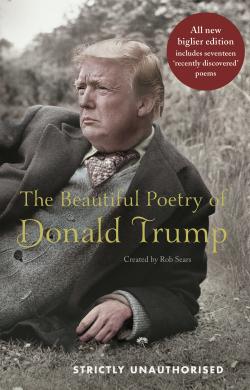 What if there’s a hidden dimension to Donald Trump; a sensitive, poetic side? Driven by this question, Rob Sears began combing Trump’s words for signs of poetry.
What if there’s a hidden dimension to Donald Trump; a sensitive, poetic side? Driven by this question, Rob Sears began combing Trump’s words for signs of poetry.
What he found was a revelation. By simply taking the 45th President of the United States’ tweets and transcripts, cutting them up and reordering them, Sears unearthed a trove of beautiful verse that was just waiting to be discovered.
This groundbreaking collection gives readers a glimpse of Trump’s innermost thoughts and feelings on everything from the nature of truth, to what he hates about Lord Sugar. And it will reveal a hitherto hidden Donald, who may surprise and delight both students and critics alike.
Now with seventeen all-new poems! As we lurch deeper into the Trump presidency, this timely publication also includes Sears’ scholarly footnotes and introduction, in which he excavates new critical angles and insights into the President’s poetry which the casual reader might initially overlook.
“I’m very highly educated.
I know words,
I know the best words”
– Donald Trump,
Campaign Rally, 30 Dec 2015
Rob Sears is a creative director at McCann Erickson advertising agency, has written comedy and fiction for McSweeney’s and (with his brother) wrote a sitcom for Audible starring Kevin Eldon, Felicity Montagu and Mitch Benn. He lives in Finsbury Park with his wife.
The Beautiful Poetry of Donald Trump
by Robert Sears (Author)
Subtitel: Newly Updated Edition
Including 12 Recently Discovered Poems
Hardcover: 144 pages
Publisher: Canongate Books Ltd; Main edition
August 31, 2017
Language: English
ISBN-10: 9781786892270
ISBN-13: 978-1786892270
ASIN: 1786892278
Product Dimensions: 14.4 x 1.8 x 22 cm
NUR code 754
$12.99
# new books
The Beautiful Poetry
of Donald Trump
• fleursdumal.nl magazine
More in: #Editors Choice Archiv, - Book News, Archive S-T, Archive S-T, Art & Literature News, Invisible poetry, The talk of the town
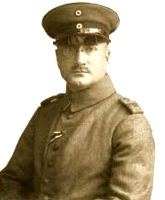
Abendgang
Durch schmiege Nacht
Schweigt unser Schritt dahin
Die Hände bangen blaß um krampfes Grauen
Der Schein sticht scharf in Schatten unser Haupt
In Schatten
Uns!
Hoch flimmt der Stern
Die Pappel hängt herauf
Und
Hebt die Erde nach
Die schlafe Erde armt den nackten Himmel
Du schaust und schauerst
Deine Lippen dünsten
Der Himmel küßt
Und
Uns gebärt der Kuß!
August Stramm
(1874-1915)
Abendgang
• fleursdumal.nl magazine
More in: Archive S-T, Archive S-T, Stramm, August, Stramm, August, WAR & PEACE
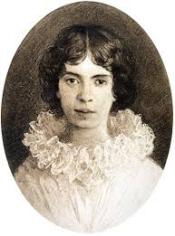
Parting
My life closed twice before its close;
It yet remains to see
If Immortality unveil
A third event to me,
So huge, so hopeless to conceive,
As these that twice befell.
Parting is all we know of heaven,
And all we need of hell.
Emily Dickinson
(1830-1886)
Parting
• fleursdumal.nl magazine
More in: Archive C-D, Archive C-D, Dickinson, Emily
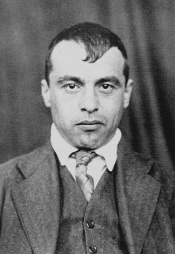
Der Visionarr
Lampe blöck nicht.
Aus der Wand fuhr ein dünner Frauenarm.
Er war bleich und blau geädert.
Die Finger waren mit kostbaren Ringen bepatzt.
Als ich die Hand küßte, erschrak ich:
Sie war lebendig und warm.
Das Gesicht wurde mir zerkratzt.
Ich nahm ein Küchenmesser und zerschnitt ein paar Adern.
Eine große Katze leckte zierlich das Blut vom Boden auf.
Ein Mann indes kroch mit gesträubten Haaren
einen schräg an die Wand gelegten Besenstiel hinauf.
Jakob van Hoddis
(1887 – 1942)
Der Visionarr (Gedicht)
• fleursdumal.nl magazine
More in: Archive G-H, Archive G-H, Hoddis, Jakob van
Les Goncourt furent à la fois acteurs et mordants spectateurs d’un demi-siècle de vie littéraire et artistique. Écrivains, critiques, collectionneurs, ils marquèrent profondément leur temps. Cette biographie, rédigée par les deux plus grands spécialistes des Goncourt et appelée à faire date, renoue les fils de cette intense vie à deux.
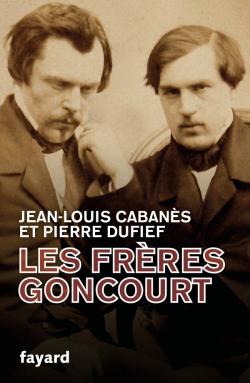 Le nom de Goncourt connaît la célébrité grâce au plus fameux des prix littéraires, mais il mérite aussi de survivre car il fut porté par deux frères, hommes de lettres novateurs, irremplaçables témoins de leur temps.
Le nom de Goncourt connaît la célébrité grâce au plus fameux des prix littéraires, mais il mérite aussi de survivre car il fut porté par deux frères, hommes de lettres novateurs, irremplaçables témoins de leur temps.
Leur double biographie ressuscite un demi-siècle de vie littéraire et artistique, où l’on croise Gautier et Flaubert, où l’on côtoie Renan, Taine, Berthelot, Daudet, Zola. Collectionneurs impénitents, esthètes dolents et élitistes, Jules et Edmond de Goncourt ont transformé leur vie et celle de leurs proches en pages d’écriture. Leur Journal, leurs romans, qui ont initié le naturalisme et la littérature fin de siècle, la création de l’académie des Goncourt, tout témoigne de leur aspiration à la survie littéraire. Leurs engagements avant-gardistes s’associent paradoxalement à un conservatisme politique qui n’exclut ni la misogynie ni l’antisémitisme.
Fondée sur des archives familiales, sur des correspondances largement inédites et sur le dépouillement de la presse de la seconde moitié du xixe siècle, cette biographie magistrale s’attache à l’œuvre littéraire et historique aujourd’hui méconnue, elle renoue les fils d’une intense vie à deux, en pénétrant dans l’intimité affective d’une gémellité fusionnelle.
Jean-Louis Cabanès, professeur émérite à l’université de Paris-Nanterre, spécialiste du roman au xixe siècle et des rapports qu’entretiennent écrits littéraires et textes médicaux, est l’auteur de nombreux ouvrages. Il dirige un collectif chargé d’établir une édition critique du Journal des Goncourt.
Pierre Dufief, professeur émérite à l’université de Paris-Nanterre, a travaillé sur le roman (1850-1914) ainsi que sur les écritures personnelles (Les Écritures de l’intime, Bréal, 2001). Président de la Société des amis des frères Goncourt, il édite la correspondance des deux frères.
Les Frères Goncourt
Jean-Louis Cabanès et Pierre Dufief
Parution: 11/03/2020
Pages: 800
Format: 155 x 235 mm
Collection: Histoire Fayard
EAN: 9782213685960
Prix: € 35.00
Les Frères Goncourt de Jean-Louis Cabanès et Pierre Dufief a reçu la Mention spéciale du Prix Goncourt de la biographie.
# new books
Les Frères Goncourt
Jean-Louis Cabanès & Pierre Dufief
• fleursdumal.nl magazine
More in: #Biography Archives, - Book News, Archive G-H, Archive G-H, Awards & Prizes, Émile Zola, Histoire de France, Jules et Edmond de Goncourt, Libraries in Literature
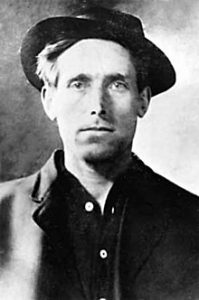
What we want
(Tune: “Rainbow”)
We want all the workers in the world
to organize
Into a great big union grand
And when we all united stand
The world for workers we’ll demand
If the working class could only see
and realize
What mighty power labor has
Then the exploiting master class
It would soon fade away.
CHORUS
Come all ye toilers that work
for wages,
Come from every land,
Join the fighting band,
In one union grand,
Then for the workers we’ll make upon
this earth a paradise
When the slaves get wise
and organize.
We want the sailor and the tailor
and the lumberjacks,
And all the cooks and Laundry girls,
We want the guy that dives for pearls,
The pretty maid that’s making curls,
And the baker and staker
and the chimneysweep
We want the man that’s slinging hash,
The child that works for little cash
In one union grand.
We want the tinner and the skinner
and the chambermaid,
We want the man with spikes on soles,
We want the man that’s digging holes,
We want the man that’s climbing poles,
And the tracker and the mucker
and the hired man
And all the factory girls and clerks,
Yes, we want every one that works,
In one union grand.
Joe Hill
(1879-1915)
What we want
Song
• fleursdumal.nl magazine
More in: # Music Archive, Archive G-H, Joe Hill, Workers of the World
Dans un bel essai biographique, Patricia Bouchenot-Déchin redonne vie à l’auteur de Peau d’âne et du Conte de ma mère l’Oye, en replaçant l’homme au coeur d’un milieu et d’un environnement de relations personnelles.
 Il était une fois cinq frères liés comme les doigts d’une main… Le benjamin, Charles, les mène sur le chemin de la gloire. Et pourtant, après avoir été la cheville ouvrière de l’ambitieuse politique artistique de Louis XIV pendant vingt ans, il est brutalement évincé du pouvoir. L’académicien et écrivain polémiste, blessé, néanmoins toujours joueur, riposte et oppose des rêves fastueux à la réalité. Champion des Modernes contre les Anciens, il laisse paraître, au terme d’une vie bien remplie, ses contes – toujours aussi célèbres aujourd’hui – mais étrangement sous le seul nom de son fils.
Il était une fois cinq frères liés comme les doigts d’une main… Le benjamin, Charles, les mène sur le chemin de la gloire. Et pourtant, après avoir été la cheville ouvrière de l’ambitieuse politique artistique de Louis XIV pendant vingt ans, il est brutalement évincé du pouvoir. L’académicien et écrivain polémiste, blessé, néanmoins toujours joueur, riposte et oppose des rêves fastueux à la réalité. Champion des Modernes contre les Anciens, il laisse paraître, au terme d’une vie bien remplie, ses contes – toujours aussi célèbres aujourd’hui – mais étrangement sous le seul nom de son fils.
Dans une biographie pleine d’allant et riche en inédits, Patricia Bouchenot-Déchin révèle un homme complexe et fantasque. Son destin héroïque et tragique, façonné dans le miroir ardent de ses métamorphoses, s’apparente à celui d’un Petit Poucet devenu tour à tour Chat botté, prince charmant et Barbe bleue.
Patricia Bouchenot-Déchin a publié biographies, essais et romans. Ses travaux sur André Le Nôtre et sa biographie parue chez Fayard ont reçu de nombreux prix en Europe et aux États-Unis parmi lesquels, en France, le prix Hugues Capet 2013 et en 2014 le prix d’Académie de l’Académie française.
Charles Perrault
par Patricia Bouchenot-Déchin
2018
Pages: 360
Format: 135 x 215 mm
Collection: Histoire
FAYARD
EAN: 9782213705644
€ 21.90
# new books
Charles Perrault
par Patricia Bouchenot-Déchin
• fleursdumal.nl magazine
More in: #Biography Archives, - Book News, Archive A-B, Archive O-P, Grimm, Andersen e.o.: Fables, Fairy Tales & Stories, Histoire de France, Perrault
Selected by Carol Ann Duffy for Laureate’s Choice Love, death, Bruce Willis, public urination, being a woman, love, The Nanny, love. This pamphlet of poetry by Hera Lindsay Bird is a startling departure from her bestselling debut Hera Lindsay Bird by defying convention and remaining exactly the same, only worse.
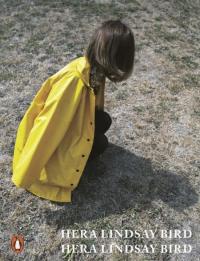 This collection, which focusing on love, childish behaviours, 90’s celebrity references and being a woman is sure to confirm all your worst suspicions and prejudices. In a recent comments section on the Guardian, her work has been described as “This comment was removed by a moderator because it didn’t abide by our community standards. Replies may also be deleted. For more detail see our FAQs,” and “This comment was removed by a moderator because it didn’t abide by our community standards. Replies may also be deleted. For more detail see our FAQs.”
This collection, which focusing on love, childish behaviours, 90’s celebrity references and being a woman is sure to confirm all your worst suspicions and prejudices. In a recent comments section on the Guardian, her work has been described as “This comment was removed by a moderator because it didn’t abide by our community standards. Replies may also be deleted. For more detail see our FAQs,” and “This comment was removed by a moderator because it didn’t abide by our community standards. Replies may also be deleted. For more detail see our FAQs.”
“Keats is dead so fuck me from behind
Slowly and with carnal purpose
Some black midwinter afternoon
While all the children are walking home from school
Peel my stockings down with your teeth
Coleridge is dead and Auden too”
Hera Lindsay Bird has a MA in poetry from Victoria University of Wellington, where she won the 2011 Adam Prize. Her work has been published by The Toast, The Hairpin, Sport, Hue & Cry, The Spinoff, The New Zealand Listener and Best New Zealand Poems. In 2017, she won the Jessie Mackay Best First Book Award for Poetry and the Sarah Broom Poetry Prize. She is currently living in Wellington.
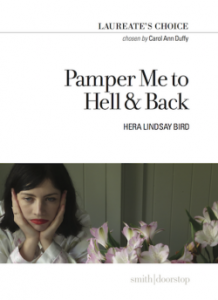 Hera Lindsay Bird
Hera Lindsay Bird
Pamper Me to Hell and Back
English Poetry
Publisher: Smith/Doorstop Books/
Penguin Books Ltd
112 pages
ISBN-10: 1910367842
ISBN-13: 978-1910367841
NUR code 306
Paperback
$11.69
# new poetry
Hera Lindsay Bird
Pamper Me to Hell and Back
• fleursdumal.nl magazine
More in: #Editors Choice Archiv, - Book News, Archive A-B, Archive A-B, LITERARY MAGAZINES
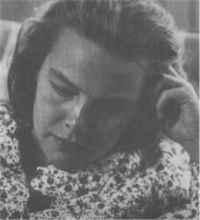
Survivors—Found
We thought that they were gone—
we rarely saw them on our screens—
those everyday Americans
with workaday routines,
and the heroes standing ready—
not glamorous enough—
on days without a tragedy,
we clicked—and turned them off.
We only saw the cynics—
the dropouts, show-offs, snobs—
the right- and left- wing critics:
we saw that they were us.
But with the wounds of Tuesday
when the smoke began to clear,
we rubbed away our stony gaze—
and watched them reappear:
the waitress in the tower,
the broker reading mail,
a pair of window washers,
filling up a final pail,
the husband’s last “I love you”
from the last seat of a plane,
the tourist taking in a view
no one would see again,
the fireman, his eyes ablaze
as he climbed the swaying stairs—
he knew someone might still be saved.
We wondered who it was.
We glimpsed them through the rubble:
the ones who lost their lives,
the heroes’ double burials,
the ones now “left behind,”
the ones who rolled a sleeve up,
the ones in scrubs and masks,
the ones who lifted buckets
filled with stone and grief and ash:
some spoke a different language—
still no one missed a phrase;
the soot had softened every face
of every shade and age—
“the greatest generation” ?—
we wondered where they’d gone—
they hadn’t left directions
how to find our nation-home:
for thirty years we saw few signs,
but now in swirls of dust,
they were alive—they had survived—
we saw that they were us.
Joan Murray
(1917-1942)
Survivors—Found
(poem)
• fleursdumal.nl magazine
More in: Archive M-N, Archive M-N, Joan Murray
Thank you for reading Fleurs du Mal - magazine for art & literature